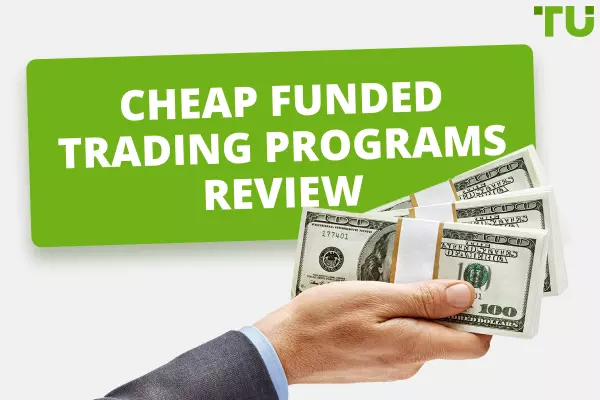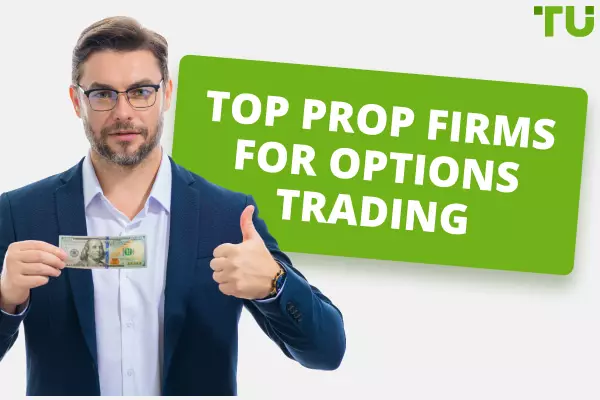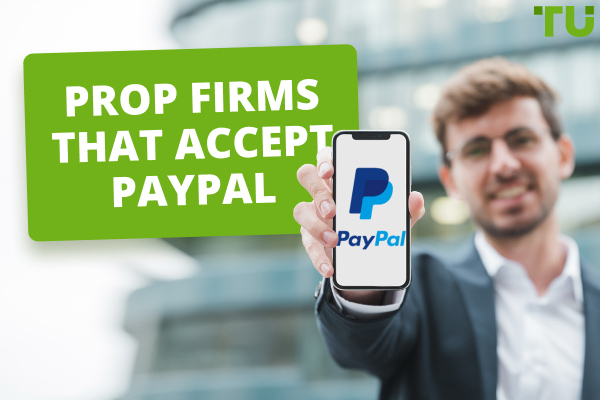Prop Firms Blacklist 2024
Prop trading scams:
-
Funded Academy - fraudulent scheme
-
Auto Prop Trader - fraudulent scheme
-
T4TCapital - fraudulent scheme
-
Traderseed - fraudulent scheme
-
BluFX - fraudulent scheme
-
My Forex Funds - fraudulent scheme
Prop trading is a form of cooperation between companies and private traders, the meaning of which is that the trading firm provides its partners with financial capital for trading, and they, in turn, share a percentage of profits with the company. At first glance it seems that there are no risks for traders, as they do not invest their own money, but in reality everything is much more complicated than it seems at first glance.
In this article, we will analyze what fraud schemes are common in this type of activity, as well as what signals indicate that you have contacted scammers.
Prop scamming format - is the work of a financial organization in which partners manage capital on a profit-sharing basis. It is because of this wording that traders are convinced that there are no risks for them, as in this case they do not invest their own funds. However, in reality, there are always chances to run into fraudsters who successfully disguise themselves as legitimate proprietary firms. Swindlers use various schemes - from a fake terminal for manipulating transactions to paid training.
-
How to check the reliability of a prop company?
To make sure that the prop firm is reliable, take the following steps: believe whether the company has a license, study the key trading offers, pay special attention to the terms of profit distribution (reliable prop firms offer profit distribution ratios from 70/30 to 90/10% in favor of the trader), study the reviews of other users.
-
What are the main signs of a prop scam?
The main signs that indicate that you have encountered fraudsters: lack of clear terms of cooperation, lack of documentation confirming the legality of the company, incomplete or unreliable information on the website, trading platform of dubious origin, use of strong pressure tactics.
-
What to do if you were deceived by a prop company?
If you have been scammed by a prop firm, first gather evidence of the scam: screenshots of correspondence, recordings of phone calls, receipts confirming the transfer of funds, etc. Then, depending on your location, file an official complaint with the appropriate authorities. And to protect other traders from being scammed, don't forget to share a review with a detailed description of the fraud scheme.
-
What are the risks in prop trading?
The main risks are related to the fact that fraudsters are often found in the financial market trying to pass themselves off as a reliable proprietary firm. As part of the scam, they ask users to pay fees, buy training courses without which they allegedly cannot pass the assessment stage, and provide them with fake software that is fully controlled by the managers of the scam project.
Scammers in prop trading: who are they?
At first glance, it may seem that there is no room for deception in proprietary trading, as in this case it is only the company that risks its funds, not the partners. Although a firm's activity in the field of proprietary trading does not automatically make it fraudulent, unfortunately, the chances of encountering swindlers are quite high.
Fraudsters only pretend to be bona fide companies, using various schemes of deception - from trivial phishing links to steal personal data to fake trading terminals, with the help of which they manipulate transactions, so that they can then announce to an unsuspecting trader a fine for failure to fulfill the terms of the contract. Also, one of the most obvious schemes is refusal to withdraw funds. The user expects to receive a deserved part of the profit, but in the end receives only a blocked account. In addition, fraudulent pro-payment companies may impose such requirements for evaluation that are simply impossible to fulfill.
To establish their reputation as a trustworthy company, prop firms attribute non-existent merits to themselves and forge licenses, as well as massively publish custom reviews on forums. Experts will discuss other signs of unscrupulous firms in the next section.
Top signs you might be dealing with a prop scam
Now let's see what signs indicate that you have stumbled upon a scammer who is only interested in his own profit:
-
A vague profit-sharing structure. A legitimate proprietary firm has a clear and structured profit sharing agreement. If you don't see this clause on the firm's website, or if managers avoid specifics during face-to-face conversations, it's best to keep looking
-
Overly tempting promises. Scammers like to make promises to traders about potential profits that are almost unrealistic, so be skeptical of prop firms that offer you quick and easy money
-
Presence of hidden fees. Often in the course of cooperation with fake prop companies, they "pop up" some additional fees that were not mentioned earlier. For example, some taxes or account maintenance debts need to be repaid
-
Haste. Scammers prefer to rush their victims to keep them off the hook. If managers are too persistent and do not leave you time for long thoughts, then something is clearly wrong here
-
Negative feedback. The first thing to do before starting a cooperation is to familiarize yourself with the reviews about the company. If the vast majority of comments are negative, then you won't be able to make money here
What fraudulent schemes are most used by prop scammers?
| Method | Description |
|---|---|
|
Before entrusting traders with capital for management, proprietary firms organize competitive selections and this is quite logical. However, if a company asks a trader to open a real account and deposit his own money, it is a clear sign of fraud. At the same time, fake prop-firms often allow repeated participation, which should be alarming. And to ensure that the participants of the selection exactly drained the deposit, scam artists strictly limit the competition in time and set almost impossible conditions. Legitimate proprietary firms hold contests on demo accounts and real capital, and moreover your own, is not involved in this case. |
|
Fines |
This scam comes into effect at the stage of profit withdrawal. In order not to pay traders their deserved part, fraudsters, for example, refer to a certain claim of the liquidity provider, according to which the proprietary firm allegedly has to pay a penalty that is many times higher than the amount of your profit. As a result, you also owe the company. Also, scammers can fine a trader allegedly for violating the rules and strategy of the company without warning him about it in advance. The reasons for the fine can be any and often they are not fixed in the documents or are spelled out in very small print, and as you already know, illegal proprietary firms do not give time to think. |
First installment |
No self-respecting proprietary company will take money from a trader up front. Often scammers play on the victim's weaknesses, offering to manage an impressive amount of money. But in order to get the capital in full, the trader needs to pay a symbolic fee for opening an account (in most cases, scammers demand up to $500 from victims). Everything usually ends with the fact that after receiving the requested amount, the scammers simply stop answering the calls and messages of the deceived user. |
Phishing site |
Scammers create a fake website masquerading as a legitimate one in order to swindle traders out of their personal data. Using this information, scammers can gain access to your account and steal your money. |
Publication of false success stories |
In order to convince a trader of the coming success for sure, scammers on their official website tell fake stories about people who were ordinary office clerks/plumbers/engineers, etc., then became interested in trading on financial markets and connected their lives with prop trading, earning a multimillion-dollar fortune thanks to it. Of course, all the photos you go to the fake prop firm's resource are stock photos. |
Paid training |
A trader in a proprietary company is essentially an employee and it is the direct responsibility of the firm to train him. You should be concerned if the company asks you to pay for your own training. |
If you have already suffered from the actions of prop scammers, you should:
Sometimes tips on how to recognize scammers become irrelevant, as the trader has already fallen into the clutches of scammers and lost his capital. If you have submitted an official claim to a proprietary company and have not received a response within the timeframe established by the regulations, proceed to the next steps:
-
Stop sending funds. The first and most important step is to suspend any money transfers. For example, even if a proprietary firm assures you that by paying the fine, you will 100% receive your share of the profits, don't believe its claims. In this way, scammers are trying to take even more money from you
-
Collect evidence. Screens of correspondence, receipts for transferring funds, records of phone conversations, feedback from other traders regarding cooperation with a proprietary company - all of this will be useful to you in the future to confirm the fact of fraud
-
File a complaint with the financial regulator. If the proprietary firm's website indicates which public law institution regulates its activities, you can file a complaint with that supervisory body, detailing the scam scheme the company is using and attaching the evidence collected. Ideally, it is a collective complaint. You may not be able to recover your own funds, but the supervisory authority will put the firm on its blacklist, which will protect others
-
Write a review. Do not let other traders fall for scams by warning them of the danger! Your honest review may force someone to stop cooperating with a proprietary firm
To have the right to free legal support of qualified specialists and not to waste time solving a possible dispute with a proprietary firm, register on the Traders Union website and cooperate only with proven and reliable companies.
Expert opinion
Many traders mistakenly think that cooperation with proprietary firms does not carry any risks, but in fact this is not the case. You can become a victim of swindlers who promise "golden mountains", but in fact are aimed solely at emptying other people's wallets.
Lack of licenses, problems with technical support, dubious software, lack of information on the website, unwillingness of managers to answer questions concerning the scheme of profit distribution, the amount of possible commissions, etc., paid training, competitive selection with vague conditions and with the use of real trader's funds - all this indicates that you are dealing with an unscrupulous prop-company, which has only its own earnings in the first place.
When choosing a firm, pay close attention to its age, reputation, working conditions and feedback from other traders. For additional support from professional lawyers, choose a proprietary firm from the Traders Union rating.
How to avoid prop scams?
In order to keep yourself safe from fraud, you need to conduct a thorough analysis of the chosen prop firm. Here are a few points to which you should pay priority attention:
-
Don't fall for overly tempting promises: Avoid firms that tout guaranteed profits or use strong pressure tactics. There is no quick and easy money in prop trading. Your earnings are directly related to your level of knowledge and experience, so if a firm makes promises that seem too good to be true, stay away
-
Pay attention to the commission structure: Legitimate prop firms are transparent about their commission structure. Be wary of firms that require significant upfront fees or convince you to purchase training. A trustworthy company has a fair profit sharing model in place that is in its best interest as well as that of traders
-
Assess the level of support: First, check the support service - what contact information is posted on the site and how quickly managers handle requests. Second, reliable prop firms almost always offer educational courses, mentoring programs, and other tools to help develop skills
-
Promote reviews: To avoid falling victim to scammers, check out the company's reviews beforehand and see if it's on any blacklists. You can do this on the Traders Union website
Prop trading scams
-
Funded Academy
-
Auto Prop Trader
-
T4TCapital
-
Traderseed
-
BluFX
-
My Forex Funds
How do I know if a prop firm is trustable?
Fortunately, traders are not only surrounded by scammers, but also by reliable prop firms that have been operating for quite a long time and have many satisfied partners. They can be identified by the following parameters:
-
transparent and fair profit distribution model - the optimal profit distribution will be 80/20 or 90/10 in favor of the trader, if the firm offers less than 50%, it is not the best option for long-term work
-
adequate criteria for evaluating future candidates with specific drawdown requirements and profit targets
-
positive feedback on forums
-
reliable, competent and prompt customer support
-
availability of free training materials
-
a large number of reviews on reputable sites such as Traders Union
-
access to proven trading terminals
-
absence of pushy and unwanted marketing - managers of legitimate prop firms always give time to make a decision and do not pressure traders
Feedback of Traders Union’s participants on prop scams
Reviews are an excellent opportunity to obtain valuable information about a company without risking either your own money or time. Before starting cooperation with a prop firm, it is necessary to carefully study the reviews of its former and current partners in order to understand to what extent the company's offers coincide with the real state of affairs, and what pitfalls to expect.
For example, if you see a lot of negative reviews on forums, refrain from cooperating with a prop company, as most likely it is fraudulent and only masquerades as a legitimate firm in the hope of attracting as many gullible traders as possible. When analyzing reviews, pay attention to such nuances as: the presence of specifics and personal details, the date of publication of comments (a large number of reviews published on the same day is a sign of tampering), the presence/absence of slang, etc. Read more about the signs of fake reviews in this article: Forex Trading Reviews 2024 - Avoid Scam Brokers.
You can find and read real and verified reviews about prop firms on the Traders Union website. Thousands of traders share the most useful and up-to-date information about prop firms on a daily basis, regularly exchanging opinions.
Top 5 Trustable Prop firms
Conclusion
The risks of proprietary trading are directly related to the fact that most companies on the market are unfortunately fraudulent. They try to impose fake software on users and convince them that it is quite normal to go through a competitive bidding process using their own funds.
Too tempting promises detached from reality, excessive haste and intrusiveness on the part of managers, demands to replenish the balance allegedly to activate the account - "red flags" indicating that in front of you are scam artists posing as a legitimate and reliable prop company. Be careful and carefully double-check the firm's offers before starting cooperation, and don't forget to study the reviews to understand its true intentions!
Team that worked on the article
Vuk stands at the forefront of financial journalism, blending over six years of crypto investing experience with profound insights gained from navigating two bull/bear cycles. A dedicated content writer, Vuk has contributed to a myriad of publications and projects. His journey from an English language graduate to a sought-after voice in finance reflects his passion for demystifying complex financial concepts, making him a helpful guide for both newcomers and seasoned investors.
Dr. BJ Johnson is a PhD in English Language and an editor with over 15 years of experience. He earned his degree in English Language in the U.S and the UK. In 2020, Dr. Johnson joined the Traders Union team. Since then, he has created over 100 exclusive articles and edited over 300 articles of other authors.
Mirjan Hipolito is a journalist and news editor at Traders Union. She is an expert crypto writer with five years of experience in the financial markets. Her specialties are daily market news, price predictions, and Initial Coin Offerings (ICO).

















